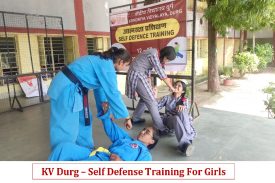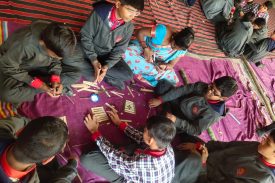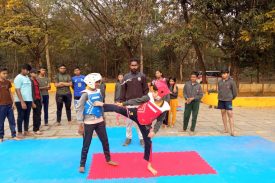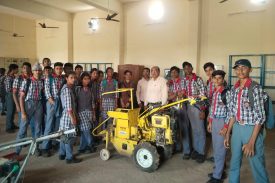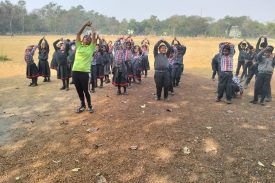Skill Education
Photo Gallery
Skill Education in Kendriya Vidyalaya Sangathan (KVS) refers to the curriculum and programs designed to equip students with practical knowledge, vocational competencies, and employability skills alongside academic learning. This initiative is in line with the National Education Policy (NEP) 2020 and the Central Board of Secondary Education (CBSE) Skill Education Framework.
Key Highlights of Skill Education in KVS
1. Objective
-
To make students future-ready by developing 21st-century skills like problem-solving, critical thinking, creativity, and digital literacy.
-
To provide hands-on learning opportunities that link school education with real-life applications and workplace demands.
-
To prepare students for vocational careers, entrepreneurship, or higher education in skill-based domains.
2. Structure
-
Middle Classes (VI–VIII):
-
Introduction of pre-vocational exposure through Work Education, Artificial Intelligence (AI), and basic coding/robotics activities.
-
-
Secondary Classes (IX–X):
-
Students can opt for Skill Subjects as an additional (6th) subject.
-
Common options include Information Technology, Artificial Intelligence (Code 417), Retail, Tourism, Beauty & Wellness, Agriculture, Multimedia, and Healthcare.
-
-
Senior Secondary Classes (XI–XII):
-
Vocational courses are offered as electives (aligned with CBSE curriculum).
-
Fields include Financial Markets, Web Applications, Health Care, Tourism, IT, and AI.
-
3. Teaching–Learning Approach
-
Project-based learning: Students complete real-life projects to apply concepts.
-
Industry linkage: Guest lectures, workshops, and industry visits for practical exposure.
-
Digital platforms: Use of e-learning tools, coding platforms, and AI labs.
-
Assessment: Based on practical performance (50%) and theory (50%), emphasizing skills over rote learning.
4. Integration with NEP 2020
-
Skill Education in KVS aligns with NEP’s vision of multidisciplinary learning and flexible curriculum pathways.
-
Focus on entrepreneurship, internships, and experiential learning.
5. Benefits to Students
-
Enhances employability and career readiness.
-
Encourages innovation, start-up culture, and problem-solving mindset.
-
Builds a foundation for higher studies in vocational/technical streams.
-
Supports self-reliance (Atmanirbhar Bharat initiative).



